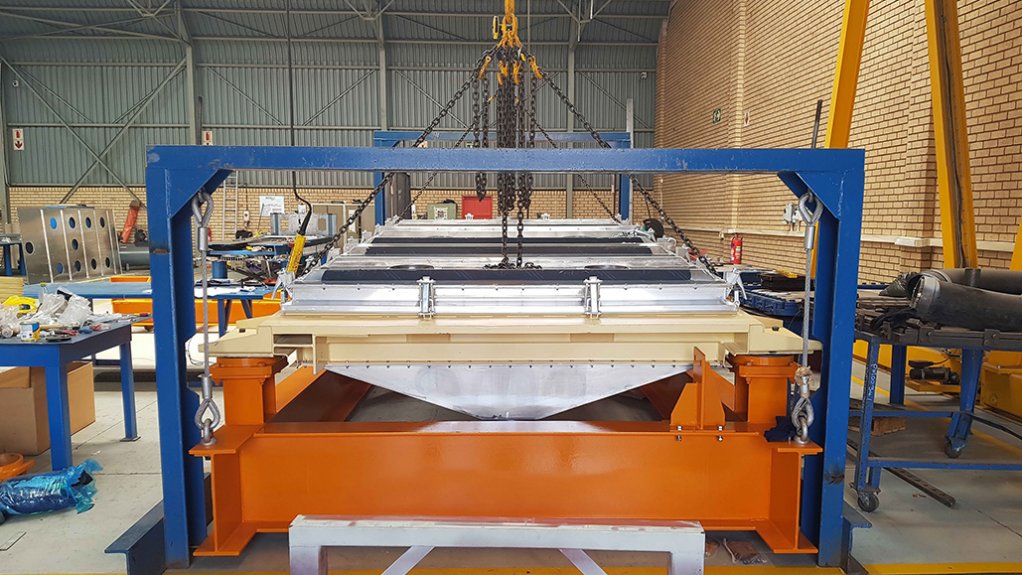Screening solutions for recycling challenges
The move towards a circular economy means that industry is required to recycle as much of its waste products as possible, and fit-for-purpose screening solutions are required for specific applications.
“Everyone wants to recycle more; it makes sense environmentally and it’s the right thing to do,” says Kwatani business development manager Warren Mann. “Recyclable waste is generally low value, however, so any recycling solution must have a highly cost effective strategy for separating different elements of the product.”
Mann highlights that, unlike most mined material, the shape and other characteristics of products that industry wants to recycle are often irregular and difficult to screen. Strands of copper wire or chips of rubber produced by a tyre shredder are varied in shape, size and consistency, making them more difficult to pass through a screening medium than aggregate stone or sand.
“This means that anyone wanting to screen industrial waste in a commercially sustainable way is unlikely to find an off-the-shelf screen design to do this,” he explains. “Detailed testing of material on different screens – or with a range of screening dynamics and parameters – is usually the only way to find a cost-effective solution.”
Most recycling demands an economy of scale, in which a sufficient volume of material can be effectively recycled to overcome the low margins of the final product.
“Kwatani has decades of experience in understanding customers’ screening needs, so we can design and manufacture a screen that is fit-for-purpose,” he says. “This expertise extends across a range of material and commodities – making us familiar with how different products respond to screening.”
Mann explains that a machine used to screen corrosive products such as crushed batteries would need to be built from specialised materials of construction, for example. There are also materials that tend to clog the screening surface, so a self-cleaning kit may be required.
“The testing we conduct will give recyclers valuable insights into how best to proceed, by avoiding the trial-and-error method that costs them more in terms of time, effort and resources,” he concludes.
Article Enquiry
Email Article
Save Article
Feedback
To advertise email advertising@creamermedia.co.za or click here
Press Office
Announcements
What's On
Subscribe to improve your user experience...
Option 1 (equivalent of R125 a month):
Receive a weekly copy of Creamer Media's Engineering News & Mining Weekly magazine
(print copy for those in South Africa and e-magazine for those outside of South Africa)
Receive daily email newsletters
Access to full search results
Access archive of magazine back copies
Access to Projects in Progress
Access to ONE Research Report of your choice in PDF format
Option 2 (equivalent of R375 a month):
All benefits from Option 1
PLUS
Access to Creamer Media's Research Channel Africa for ALL Research Reports, in PDF format, on various industrial and mining sectors
including Electricity; Water; Energy Transition; Hydrogen; Roads, Rail and Ports; Coal; Gold; Platinum; Battery Metals; etc.
Already a subscriber?
Forgotten your password?
Receive weekly copy of Creamer Media's Engineering News & Mining Weekly magazine (print copy for those in South Africa and e-magazine for those outside of South Africa)
➕
Recieve daily email newsletters
➕
Access to full search results
➕
Access archive of magazine back copies
➕
Access to Projects in Progress
➕
Access to ONE Research Report of your choice in PDF format
RESEARCH CHANNEL AFRICA
R4500 (equivalent of R375 a month)
SUBSCRIBEAll benefits from Option 1
➕
Access to Creamer Media's Research Channel Africa for ALL Research Reports on various industrial and mining sectors, in PDF format, including on:
Electricity
➕
Water
➕
Energy Transition
➕
Hydrogen
➕
Roads, Rail and Ports
➕
Coal
➕
Gold
➕
Platinum
➕
Battery Metals
➕
etc.
Receive all benefits from Option 1 or Option 2 delivered to numerous people at your company
➕
Multiple User names and Passwords for simultaneous log-ins
➕
Intranet integration access to all in your organisation



















